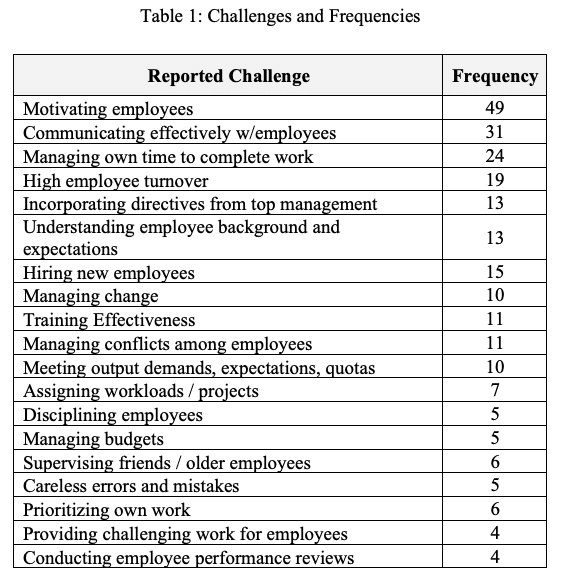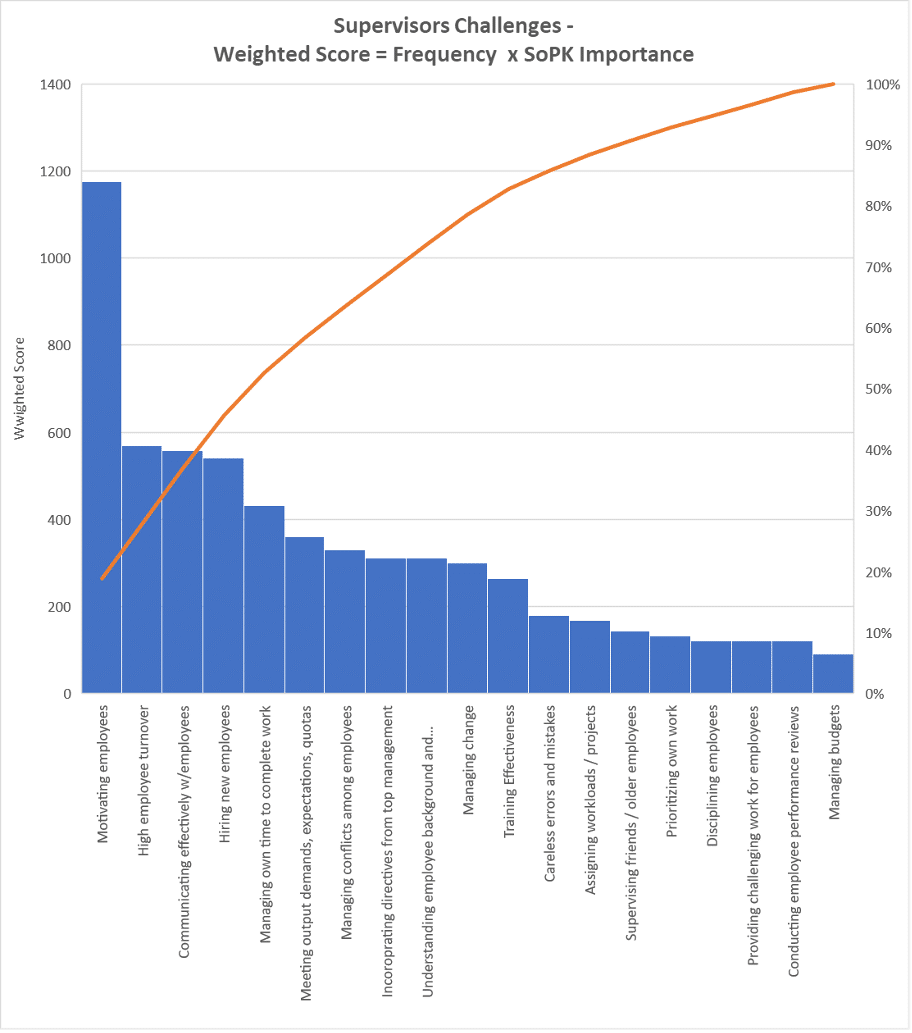Guest post by Dr. Mustafa Shraim of Ohio University and Kelly L. Allan of Kelly Allan Associates, Ltd.
In most organizations, managers’ challenges range from doing more with less to motivating employees. This is causing managers to report “burnout” on a massive scale. To solve such challenges effectively, means identifying their underlying causes which, the authors find, are seldom addressed. And even when they are addressed in traditionally managed organizations, the solutions are usually in the form “command and control” management approaches, which make burnout worse.
In this study, over 120 interviews of supervisors and managers in various industries were conducted to identify top challenges named by managers.
The results show that motivating employees and communicating effectively are the top two challenges reported, respectively, with time management being third.
In this paper, the top challenges are analyzed using the Deming Management Method — specifically Deming’s System of Profound Knowledge (SoPK) lens. The SoPK lens is used to ask:
- Are the root issues of the challenges typically overlooked or misdiagnosed?
- Can the SoPK lens provide insight as to how organizations can address the challenges? If so, how?
- What can be done about each challenge individually and collectively to reduce the burnout of managers?
In addition to Dr. Deming’s SoPK, the paper also discusses Dr. Deming’s 14 Points for Management, his list of Deadly Diseases, and the problems inherent in typical “change management” approaches when they are used to address managerial challenges.
The following table shows the frequency of each reported challenge. There is a Pareto-like distribution as you read down the list. Consequently, supervisors are spending an inordinate amount of their time trying to create a culture of engagement. Unfortunately, they are using traditional “command and control” tools which are counterproductive and make it more and more difficult for them to be successful managers.

The following graph shows the calculations made by the authors, using a weighted system, to calculate the challenges of supervisors and their relationship to SoPK. The scoring provides a useful foundation for the depth of discussion of solutions for each of the supervisors’ challenges.

One conclusion is as follows:
What can be done about each challenge individually and collectively to reduce the burnout of managers? Trying to solve the challenges individually and collectively without using the Deming SoPK lens is virtually impossible. Consider, for example, that the recurrence of the challenges year after year in interviews with students indicates that the conventional approaches used to address the challenges are fixes that fail. As Deming pointed out, “we are in need of a new philosophy of management.” He said managers “know not what to do.” More specifically, managers do not know what to do instead of –and to move beyond– conventional fixes. Only learning about SoPK, which is the new philosophy of management, will help them. Thus, in the absence of an SoPK-based approach, most managers will continue to burn out. Some will try to prevent their own burnout by giving up –by just trying to get through each day and by reluctantly accepting, as the authors have often heard: these challenges are just an unpleasant part of every manager’s job. We just try to keep them under control the best we can.
To paraphrase Deming: that is just not good enough. The managers should not accept the challenges to be just the way things are, nor accept burnout as their destiny



I have just completed a survey regarding leadership characteristics, number 1 in frequency was communicator, and in the top five, employee relationship management and community relationship knowledge/relationships